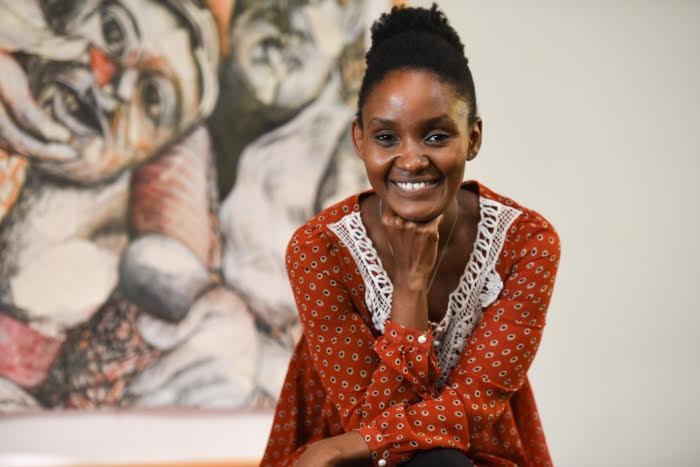Research

Zuziwe Msomi is doing her PhD on everyday talk and discrimination.
Since racism is one of the key categories that the Soudien Report and HEIs are concerned with when it comes to the issue of transformation, especially in terms of senior academic positions the focus of the study will be on attempting to capture and understand ‘raced’ social interactions in the institutional space. Guided by the powerful insights of conversation analysis, here the interest is not in the obvious: racial slurs or overt discriminatory talk but is rather in the more hidden ways in which discrimination and exclusion are reproduced in the work that people do with their everyday talk. Conversation analysis also provides the possibility to reveal moments of resistance, rupture and interruption of the dominant culture(s) of institutions.

Grace Idahosa is the project leader on marginalities.
The marginalization of women in universities has been the subject of a wide research literature which documents the challenges faced by women in these institutions (Acker 1980; Acker and Feuerverger 1996; Bagilhole 1993; Reay 2000; Walker 2010; Skelton 2005a, b; Dillabough 1999; Walsh 1995). According to the Education White Paper of 1997, ‘this problem of underrepresentation of Blacks and women especially in senior positions goes beyond the legacies of apartheid to deeply embedded sexist ideologies that cut across race and class (White Paper 3 1997).
Going beyond the numbers, Acker and Webber (2009, 486), argued that there is a wide gap between the position of women academics and the structures, cultures and practices of universities. The intertwined nature of sexist, patriarchal and phallocentric knowledge’s affects the existing structures and practices in academic institutions, producing various forms of discrimination, inequality, oppression and marginalization which are deeply embedded in the day to day interaction amongst academic staff and negatively affects the experience of the academic woman. Other work has related to subtle forms of silencing of women in the academy particularly concerning gender related issues, as a result of underlying practices, expectations and prejudices (see for instance Bagilhole 2000, 28; Skelton 2005b, 329; Walker 2010, 372). Academic women report feeling invisible and retreating to the margins so as to avoid victimization and discrimination, (Reay 2000, 18; Alfred 2001, 62).
Taking this research as its starting point, the aim of this project is to understand how women academics negotiate the terrain of the academy, what this process of negotiation entails, what its costs and benefits are and what the effects on women academics are of the discriminatory gendered environment that they encounter in academia.
To find out more about this research contact Louise Vincent (l.vincent@ru.ac.za)

This project takes the experiences of first generation academics as a prism through which to view gendered social, personal and political relations in the university. 'First generation’ academic women are those who are the first in their family to graduate with a university degree. As Jackson and Mazzei (2012, ix) point out, the experiences of first generation academics are largely unknown, as they are rather invisible and having had no prior scripts to read off, their perspectives offer a very particular vantage point from which to view the negotiation of marginality in the academy. The project explores first generation academics’ understanding and perception of their experiences of occupying a marginal space in the academy, given that they have had little in the way of prior experience, role models or access to the university context as cultural and social resources with which to negotiate marginality. The research is interested in what insights this particular layer of academics can provide into how the dominant institutional culture operates and how those considered marginal are positioned by that dominant culture.
Papers
One of our projects will be to review existing data that has been generated in the Higher Education Sectorover the past few years concerning transformation, equity and institutional cultures. This data includes policy documents, the reports prepared by Higher Education Institutions in response to the Soudien Committee’s work and the responses of the HEIs to the Soudien Report. The aim of the project is to explore, describe and analyse best practice examples so that we are in a position to learn not only from some of the many exciting transformation initiatives that are taking place in multiple small and large ways across the higher education sector. The project aims further to produce a repository of existing research that has been conducted into institutional culture, equity and transformation around the country -- bringing together what is at present scattered data that has not yet been fully interpreted or utilised.

What is the value of diversity?
UCT's Employment Equity Policy states: ‘It is recognised that employment equity is essential to the University’s mission. Diversity in the University’s staff complement adds immense value to the educational experience of both a diverse student population and to the institution as a whole’ (2006, Clause 1). Do we have a culture of valuing diversity as a resource and strength to draw upon or does our culture press for homogeneity? What does valuing diversity look like and how can it be promoted? What is the relationship between having an institutional identity and the value of diversity?
To join or find out more about this project contact Prof. Louise Vincent (l.vincent@ru.ac.za).
What's Happening
Louise Vincent Twiter
RU_HEICET Tweets
